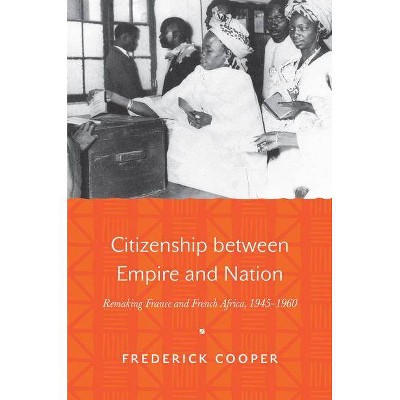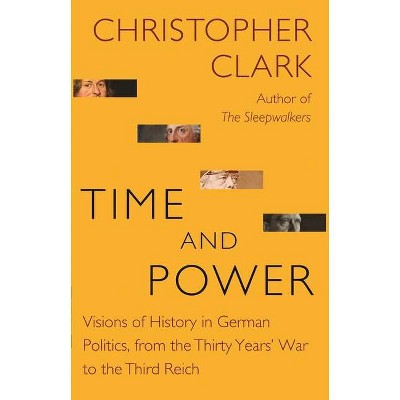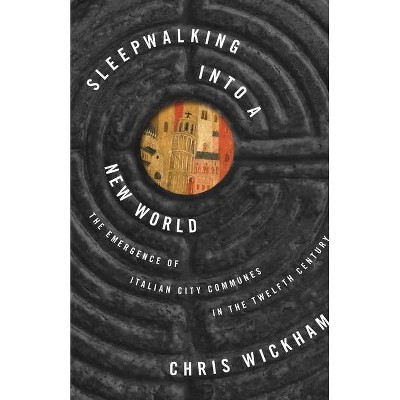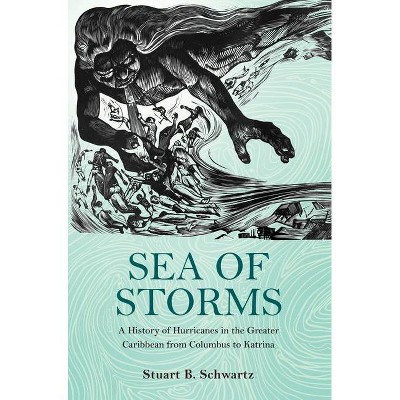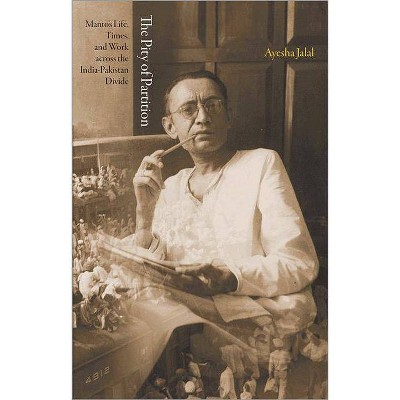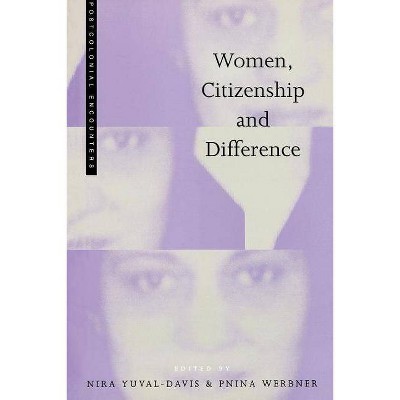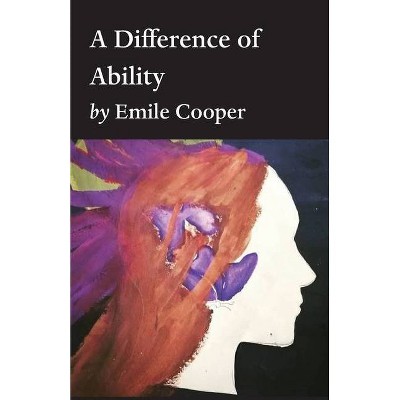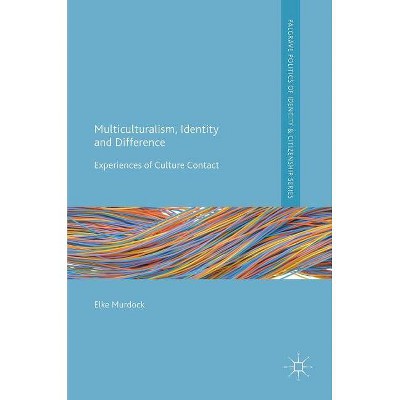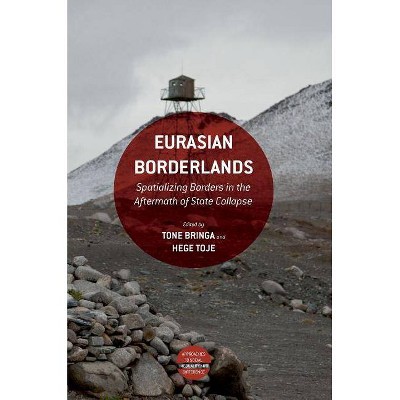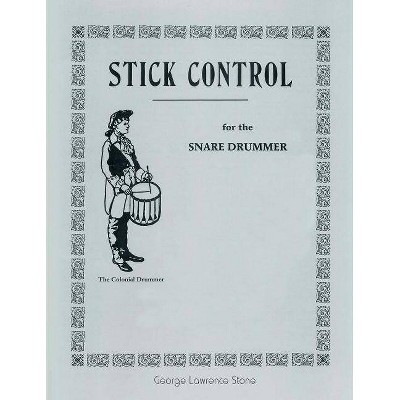Citizenship, Inequality, and Difference - (Lawrence Stone Lectures) by Frederick Cooper (Paperback)
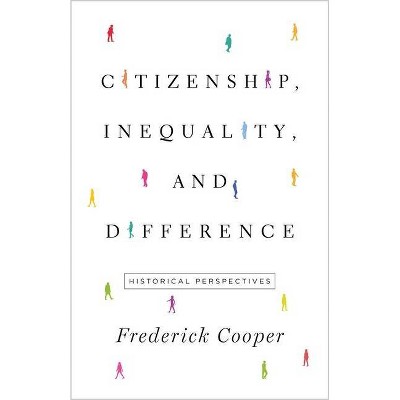
Similar Products
Products of same category from the store
AllProduct info
<p/><br></br><p><b> About the Book </b></p></br></br>"Offers an overview of citizenship's complex evolution, from ancient Rome to the present. Political leaders and thinkers still debate, as they did in Republican Rome, whether the presumed equivalence of citizens is compatible with cultural diversity and economic inequality. The author presents citizenship as 'claim-making'--the assertion of rights in a political entity. What those rights should be and to whom they should apply have long been subjects for discussion and political mobilization, while the kind of political entity in which claims and counterclaims have been made has varied over time and space. Citizenship ideas were first shaped in the context of empires. The relationship of citizenship to 'nation' and 'empire' was hotly debated after the revolutions in France and the Americas, and claims to 'imperial citizenship' continued to be made in the mid-twentieth century. [The author] examines struggles over citizenship in the Spanish, French, British, Ottoman, Russian, Soviet, and American empires, and ... explains the reconfiguration of citizenship questions after the collapse of empires in Africa and India. The author explores the tension today between individualistic and social conceptions of citizenship, as well as between citizenship as an exclusionary notion and flexible and multinational conceptions of citizenship."--<p/><br></br><p><b> Book Synopsis </b></p></br></br><p><b>A succinct and comprehensive history of the development of citizenship from the Roman Empire to the present day</b> <p/><i>Citizenship, Inequality, and Difference</i> offers a concise and sweeping overview of citizenship's complex evolution, from ancient Rome to the present. Political leaders and thinkers still debate, as they did in Republican Rome, whether the presumed equivalence of citizens is compatible with cultural diversity and economic inequality. Frederick Cooper presents citizenship as claim-making--the assertion of rights in a political entity. What those rights should be and to whom they should apply have long been subjects for discussion and political mobilization, while the kind of political entity in which claims and counterclaims have been made has varied over time and space. <p/>Citizenship ideas were first shaped in the context of empires. The relationship of citizenship to nation and empire was hotly debated after the revolutions in France and the Americas, and claims to imperial citizenship continued to be made in the mid-twentieth century. Cooper examines struggles over citizenship in the Spanish, French, British, Ottoman, Russian, Soviet, and American empires, and he explains the reconfiguration of citizenship questions after the collapse of empires in Africa and India. He explores the tension today between individualistic and social conceptions of citizenship, as well as between citizenship as an exclusionary notion and flexible and multinational conceptions of citizenship. <p/><i>Citizenship, Inequality, and Difference</i> is a historically based reflection on some of the most fundamental issues facing human societies in the past and present.</p><p/><br></br><p><b> From the Back Cover </b></p></br></br><p> "In this broad and brilliant book, Cooper examines a politically burning issue and impressively shows that from the early Roman Empire onward, the solidarity of citizenship has always coexisted with social hierarchy and political oligarchy. All around the world today, citizenship and the idea of belonging to some sort of political collectivity continue to be subjects of debate and struggle."<b>--Andreas Eckert, Humboldt University of Berlin</b></p><p>"Armed with a cosmopolitan range of historical inquiry, <i>Citizenship, Inequality, and Difference</i> profoundly deepens our understanding of the character of citizenship. Taking readers on a fascinating journey that extends from ancient Greece and Rome through early modern empires to the postcolonial nation-state, this book deftly examines the tensions between various ideals of citizenship and the lived reality of social differentiation within and between states."<b>--Richard Bourke, author of <i>Empire and Revolution: The Political Life of Edmund Burke</i></b></p><p>"From the Roman Republic to the present, citizenship has always been circumscribed and stratified--but it has also afforded what Cooper calls 'the right to claim rights.' Whether under empire or nation, citizenship has brought forth necessary contention, with never fully predictable outcomes. The relevance of Cooper's breathtakingly ambitious and masterfully told story to our age of inequality within and among nations is unmistakable."<b>--Samuel Moyn, Yale University</b></p><p>"Expansive in its intellectual terrain and efficient in its pointed insights, this incisive book is required reading for all scholars of citizenship. Cooper distills the complex layers of Roman citizenship into a compelling narrative about empire and membership that he threads through a discussion of modern and contemporary citizenship in colonial and postcolonial nation-states. <i>Citizenship, Inequality, and Difference</i> offers a clarifying lens for understanding this critical and multifaceted concept."<b>--Elizabeth F. Cohen, Syracuse University</b></p><p> "This is a significant book by a master historian. It represents the accumulated wisdom of a long career spent thinking deeply about the fundamental issues of human community."<b>--Dirk Moses, University of Sydney</b></p><p> "Through lucid and astute meditations about many different periods and parts of the world, Cooper deftly lays the groundwork for a new framework on the concept of citizenship. This ambitious book is a tour de force."<b>--Mrinalini Sinha, University of Michigan</b></p><p/><br></br><p><b> Review Quotes </b></p></br></br><br>[A] pithy, clearly-argued book.<b>---Mike Rapport, <i>Comparativ</i></b><br><p/><br></br><p><b> About the Author </b></p></br></br><b>Frederick Cooper</b> is professor of history at New York University. His many books include <i>Empires in World History</i> and <i>Citizenship between Empire and Nation</i> (both Princeton).
Price History
Cheapest price in the interval: 24.99 on October 22, 2021
Most expensive price in the interval: 24.99 on November 8, 2021
Price Archive shows prices from various stores, lets you see history and find the cheapest. There is no actual sale on the website. For all support, inquiry and suggestion messagescommunication@pricearchive.us
